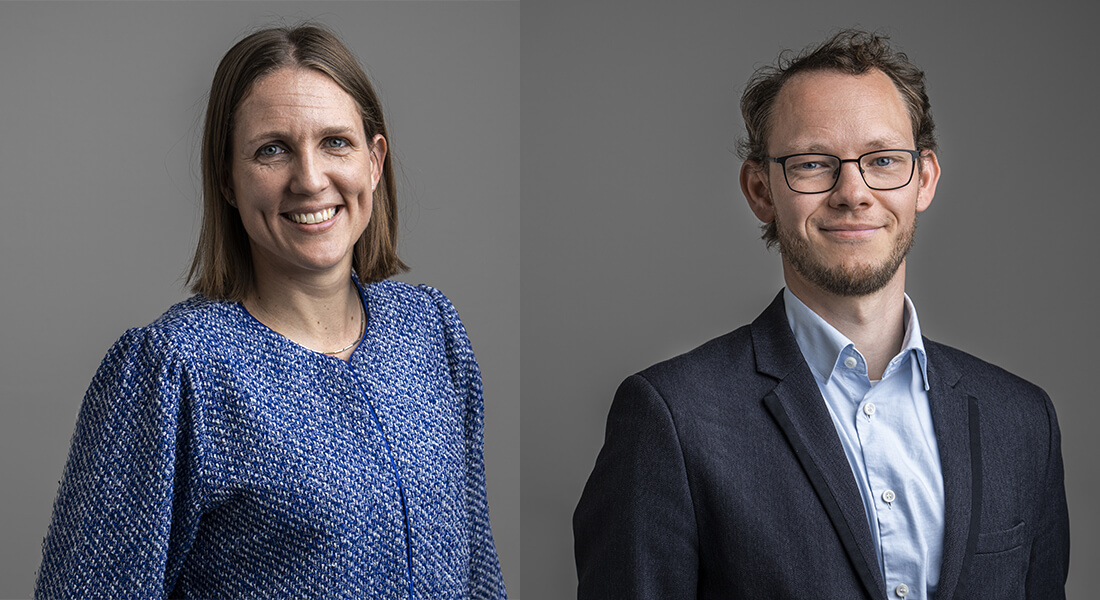From early humanity to treating today’s metabolic diseases
Two researchers from SUND, Associate Professor Frido Welker from GLOBE Institute and Assistant Professor Lærke Smidt Gasbjerg from Department of Biomedical Sciences, have received Sapere Aude grants of more than 6 mill DKK each.

Two researchers from SUND, Associate Professor Frido Welker from GLOBE Institute and Assistant Professor Lærke Smidt Gasbjerg from Department of Biomedical Sciences, have received Sapere Aude grants of more than 6 mill DKK each.
The Sapere Aude Starting Grants are given by The Independent Research Fund to exceptionally talented early-career researchers who are ready to lead multiple participants in a research project at a high international level.
See all Sapere Aude research leaders 2025 here and read about the two research leaders from SUND below:
Associate Professor Frido Welker, GLOBE Institute, ”MiddleEarth: Eurasian Hominin occupation history from the Middle to the Late Pleistocene”.
Neanderthals, Denisovans, and earlier populations of modern humans ventured into Central Eurasia at various moments in time across the last 500,000 years.
There is sparse archaeological and ancient molecular data from the region, however, limiting our understanding of the palaeoecology, hunting strategies, and hominin occupation histories across this vast geographic region. MiddleEarth allows us to generate such information for a few key archaeological sites spanning the last half million years.
Using state-of-the-art palaeoproteomics methods integrated with zooarchaeological research, we will provide insights into which animal species were hunted and the population dynamics of Pleistocene hunter-gatherers in Central Eurasia.
This will contribute unique and significant knowledge about the evolution and behaviour of our extinct cousins, the Neanderthals and Denisovans, as well as our own Pleistocene ancestors.
6.191.576 DKK
Tenure Track Assistant Professor Lærke Smidt Gasbjerg, Department of Biomedical Sciences, ”Exploring GIP physiology: Unresolved effects of an important therapeutic system”.
Recent years, the use of multiple-targeting compounds as treatment of metabolic diseases (obesity and type 2 diabetes) are greatly expanding.
Especially, many incretin-based compounds are emerging and highly effective in improving glycemic control and reducing body weight.
My field of expertise is the human physiology of the incretin hormone glucose-dependent insulinotropic polypeptide (GIP), and recently, results of treatments with long-acting GIP-based compounds have indicated that the GIP physiology is more complex than understood so far.
Therefore, I will study the role of GIP in central and peripheral insulin sensitivity, glucose-distribution, and appetite- and nausea-regulation in humans. I will use hormone infusions of a GIP receptor agonist and antagonist during gold-standard glucose clamp techniques, whole-body PET-CT during oral ingestion of labelled glucose, and modern MRI techniques, and aim at describing the novel aspects of GIP physiology and therapeutic implications.
6.191.628 DKK
Contact
Tenure Track Assistant Professor
Lærke Smidt Gasbjerg
lsg@sund.ku.dk
Associate Professor Frido Welker
frido.welker@sund.ku.dk
Article by:
Communications Consultant Lisbeth Lassen
